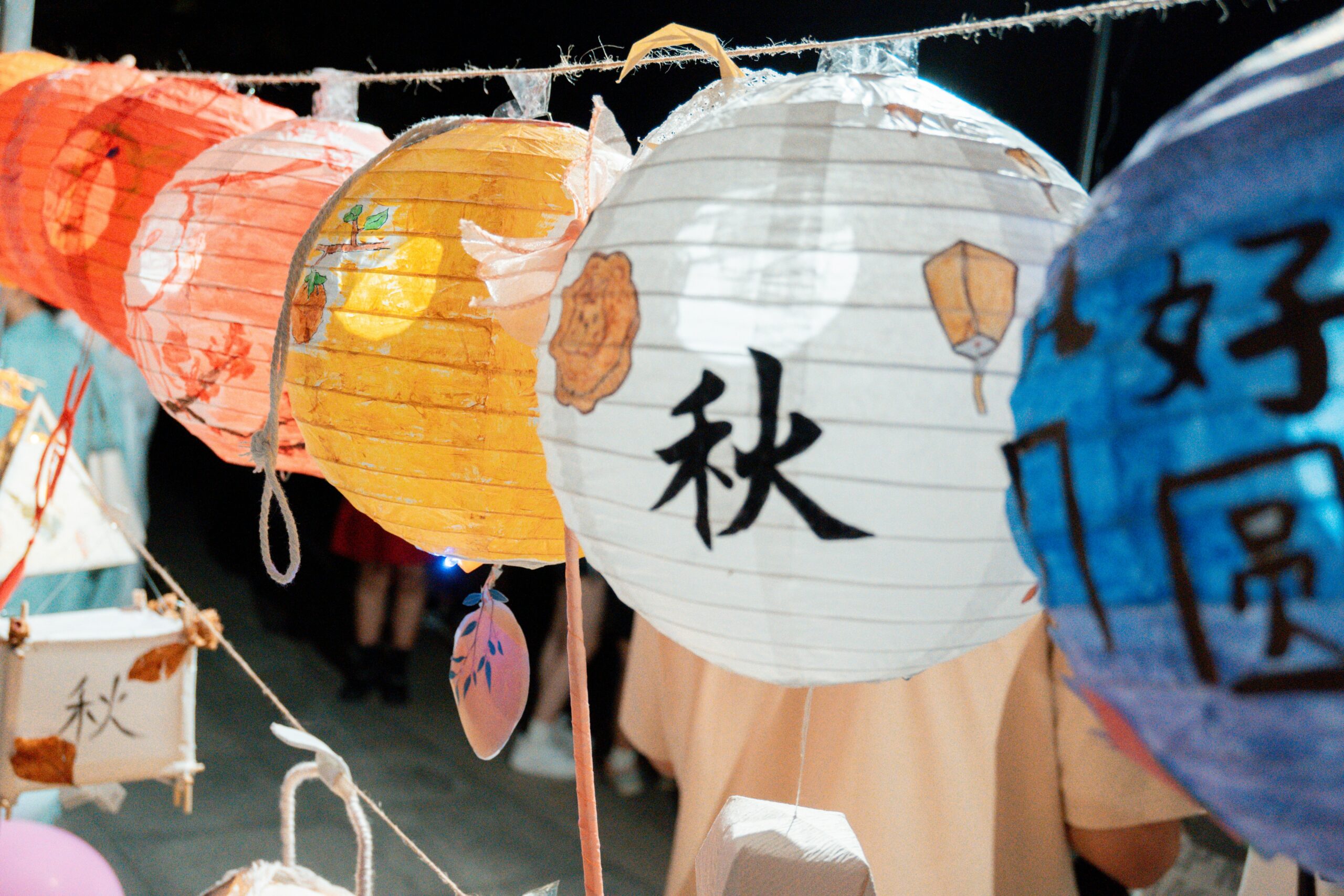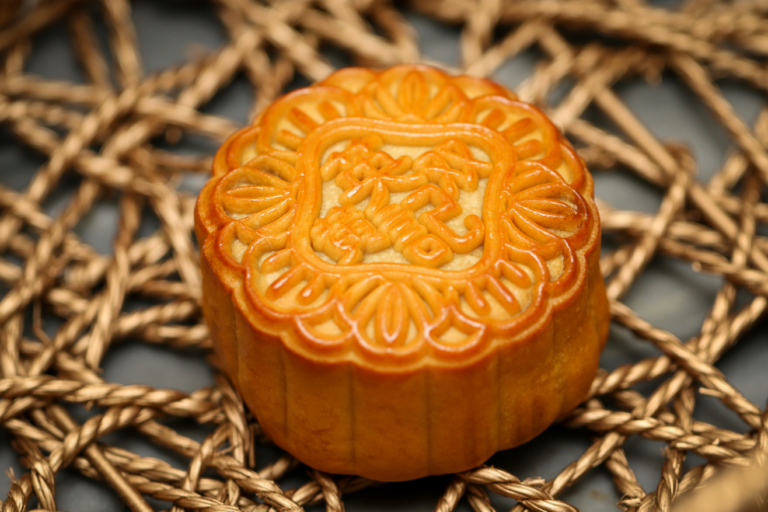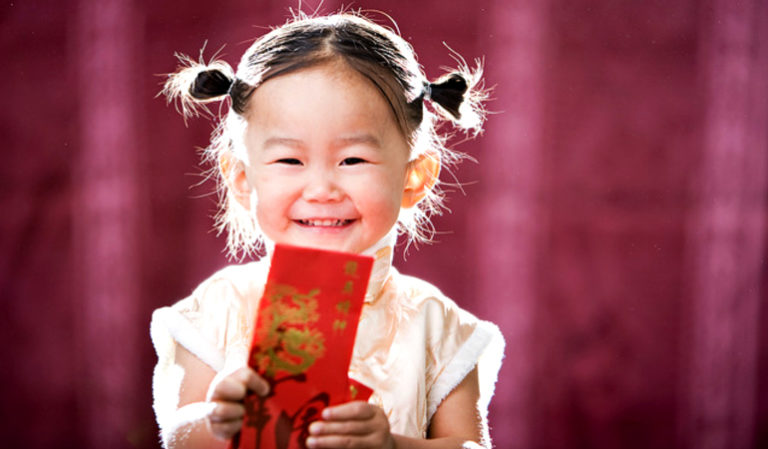The Moon Festival, also known as the Mid-Autumn Festival, is one of China’s most cherished traditions. Celebrated on the 15th day of the eighth month in the lunar calendar, it revolves around the legend of Chang’e, the Moon Goddess, and her companion, the Jade Rabbit. Families reunite to admire the full moon, exchange gifts, and enjoy delicious mooncakes. Besides mooncakes, other types of moon festival gifts are exchanged on this special day.
Download our guide to Chinese gifting habits
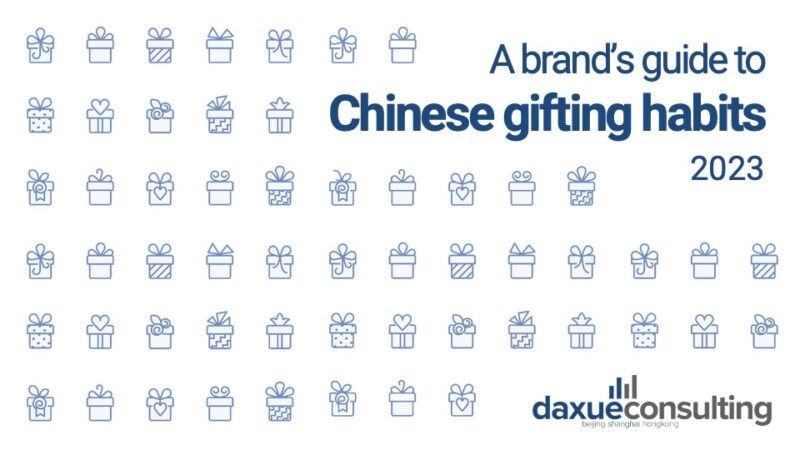
The Mid-Autumn Festival is one of the most important traditional celebrations in China. It represents reunion, gratitude, and togetherness where families and friends reconnect. Eating mooncakes has long been a central custom. But over time, these round pastries have taken on meanings that go far beyond food. They have become a symbol of affection and respect. A way for people to express good wishes and maintain social relationships during the holiday.
As consumers’ preferences change, the way people give gifts during the Mid-Autumn Festival is also evolving. While mooncakes remain at the heart of the celebration, many now prefer to give other thoughtful presents such as fine tea, traditional ham, hairy crabs, wine, or handmade crafts. These gifts add variety and personality to the tradition. This shows that the modern Mid-Autumn Festival is as much about creativity and lifestyle as it is about reunion.
Mooncakes occupy the main market as moon festival gifts
Today, mooncakes still dominate the Mid-Autumn Festival gift market. They are the first thing most people think of when the holiday comes around, symbolizing reunion and good wishes. According to the 2024 China Mooncake Industry White Paper, the value of the mooncake market has kept growing, reaching over RMB 27 billion in 2023.
Behind these impressive figures lies a long-standing tradition that connects people through food and symbolism. The variety of mooncakes available today, from classic lotus seed and red bean fillings to new and unconventional ones, shows how tradition keeps evolving. In recent years, many brands have experimented with creative flavors to appeal to younger consumers. Starbucks, for instance, has launched coffee-inspired mooncakes, while others have tried ingredients such as matcha, cheese, truffle, and even chili to give the traditional pastry a modern twist.
At the same time, younger people are bringing their own creativity to the table. Social media platforms are filled with homemade or DIY mooncakes featuring unexpected fillings like Oreo, peanut butter, or ice cream. These playful combinations reflect not just changing tastes but a more personal, hands-on approach to celebrating the festival.

Moon festival gifts in China: time-honored gifts with a modern twist
One of the most interesting trends this year is how certain gift choices have gained fresh momentum around Mid-Autumn. Three stand out in particular: hairy crabs, tea, and Jinhua ham.
In the past, fruit boxes were among the most common Mid-Autumn gifts due to their practicality and broad appeal. However, as consumer spending power grows, the gifting culture in China has shifted from practicality to symbolism. This reflects a broader trend of consumption upgrading, where gifts are chosen not just for utility, but for the cultural meaning and emotional value they represent.
Hairy crabs have become a “go-to” mid-autumn gift. Because their peak season coincides with the festival, many see them as the ultimate seasonal luxury. Media reports suggest that in some places up to 80 % of the Mid-Autumn gifts people receive are crab vouchers. These are prepaid gift certificates that allow recipients to redeem live or packaged hairy crabs. Wholesale and retail markets show that the crab business surges sharply as the festival approaches. In 2023, China’s wholesale hairy crab market size already reached RMB 32.917 billion. A Mid-Autumn gift of crabs signals both taste and status, combining seasonal delicacy with thoughtful meaning.

High-quality teas are the time-tested moon festival gifts
Tea remains a classic and deeply meaningful gift, especially towards the older generation. In China, tea carries cultural weight and is often associated with health, respect, and tranquility. Younger people increasingly choose premium teas when exchanging gifts during Mid-Autumn. Because many of the recipients are elder family members who appreciate tea culture, a well-chosen tea gift feels both traditional and considerate.
Jinhua ham is also gaining attention as a Mid-Autumn Festival gift. Known for its rich aroma, distinctive cured flavor, and long-standing reputation for quality, Jinhua ham has long been considered a premium delicacy in China’s festive markets. Now, more people are realizing that a holiday as meaningful as Mid-Autumn is just as fitting for such gifts as the Lunar New Year. With its elegant packaging and refined presentation, a Jinhua ham gift conveys both sincerity and social respect, often seen as a gesture of “face”.
According to the Jinhua Ham Industry Association, there are currently 78 ham producers in Jinhua. In 2023, the city produced around 4 million hams, accounting for roughly 40 percent of the national ham market, with an annual output value of RMB 2.3 billion. This dominance in production and branding underscores why Jinhua ham is often seen as a high-end gift choice during major Chinese festivals, including Mid-Autumn.

Young people are expressing care in their own way through Moon Festival gifts
In recent years, social media has played a big role in shaping how people choose gifts for festivals. On platforms like RedNote, the “handmade” category has consistently attracted huge attention. There were billions of views and growing engagement among young users. Influenced by this trend, many young people have started to see handcrafted products as meaningful and creative Mid-Autumn gifts.
One of the emerging trends this year is the rise of handcrafted and artisanal gifts. As people look for more personal and meaningful ways to express care, handmade products have started to gain new popularity during the Mid-Autumn Festival. Items such as embroidered pouches, ceramic tea sets, bamboo crafts, and traditional lanterns are being rediscovered as thoughtful alternatives to mass-produced goods.

Moon festival gifts in China, when local culture meets the festival spirit
Across China, regional culture and traditional craftsmanship play an important role in shaping how people choose gifts for the Mid-Autumn Festival. As the holiday becomes not only a time for reunion but also for cultural expression, many have turned to local handicrafts that carry distinctive symbols and stories from their hometowns.
In Chengdu, gifts featuring panda-themed Shu embroidery have become popular among both locals and tourists. Artisans stitch intricate panda patterns onto silk fans, scarves, and ornaments, blending Sichuan’s national treasure with centuries-old embroidery techniques. Local markets in Chengdu now feature “non-heritage gifts” that combine Shu embroidery, bamboo weaving, and tie-dye, turning traditional crafts into modern expressions of warmth and creativity.
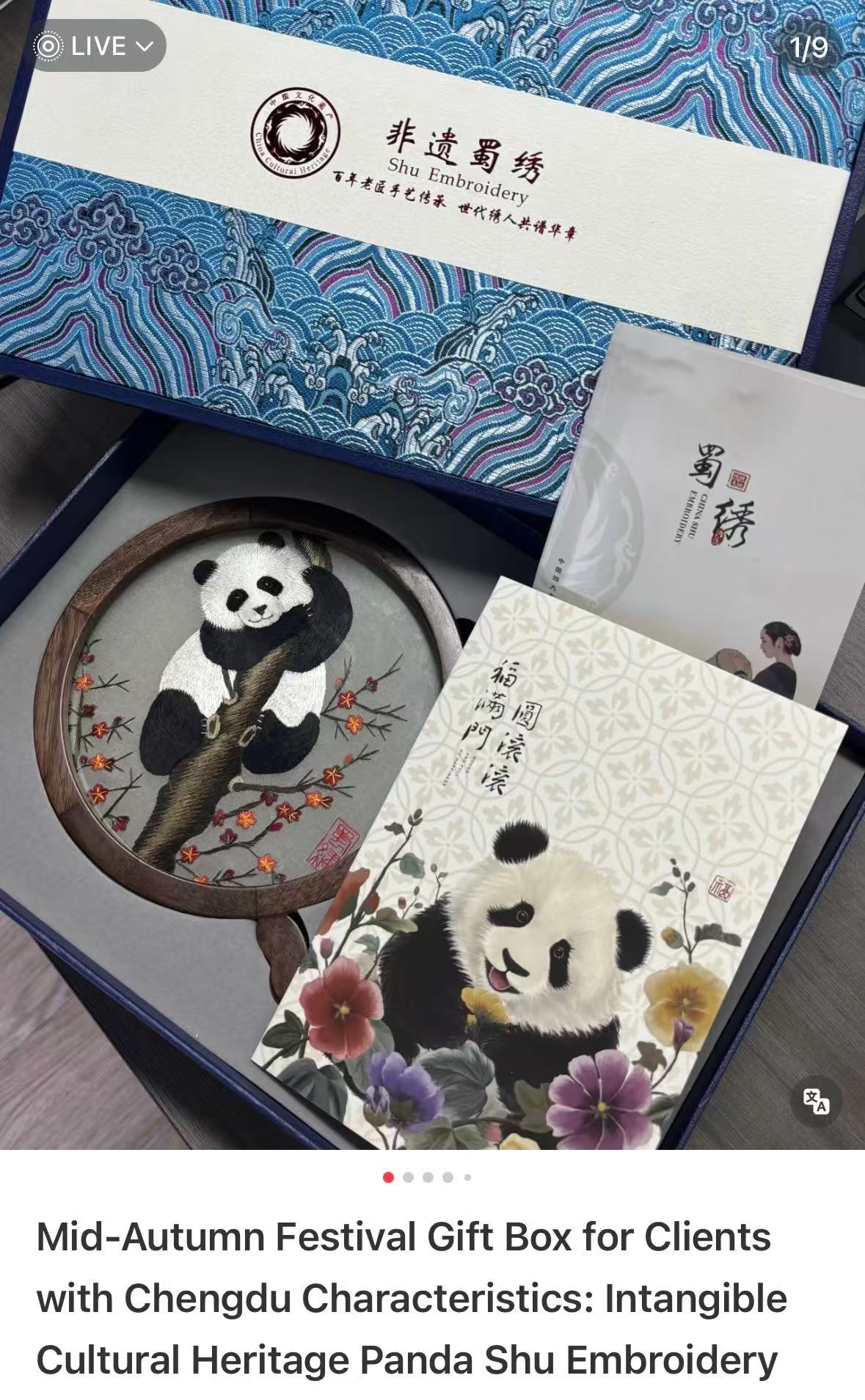
In Zhejiang, particularly in Hangzhou and Suzhou, Su embroidery continues to inspire elegant moon festival gifts. Delicate embroidered silk fans and scarves featuring motifs of flowers, birds, and landscapes are seen as symbols of refinement and good fortune. These handcrafted items have become a stylish alternative to conventional gift boxes, appealing to those who value cultural heritage and subtle beauty.

In Beijing, the Tu’er Ye clay figurine remains a cherished cultural symbol during Mid-Autumn. Originally created as a guardian figure and linked to the moon rabbit in Chinese folklore, Tu’er Ye has been recognized as a National Intangible Cultural Heritage item. Today, gifting a Tu’er Ye is not just a nod to local tradition but also a wish for peace and prosperity. It is a uniquely northern expression of goodwill during the festival.

Key takeaways from China’s moon festival gift trends
- Mooncakes remain the centerpiece of the Mid-Autumn Festival and continue to represent reunion and goodwill for most families in China.
- Gift-giving is becoming more diverse as people choose other meaningful presents to express care and affection.
- Hairy crabs, premium teas, and Jinhua ham are now popular choices that combine tradition with quality and a sense of refinement.
- Young people influenced by social media, such as RedNote, prefer handcrafted gifts to show sincerity and creativity. This reflects a more personal way of expressing feelings through gifts.
- Regional culture shapes gifting habits as people select local specialties to share their traditions and best wishes. In Chengdu, this may be panda-themed Shu embroidery. In Zhejiang, it may be Su embroidery silk fans. In Beijing, it is often the traditional Tu’er Ye figurine.


